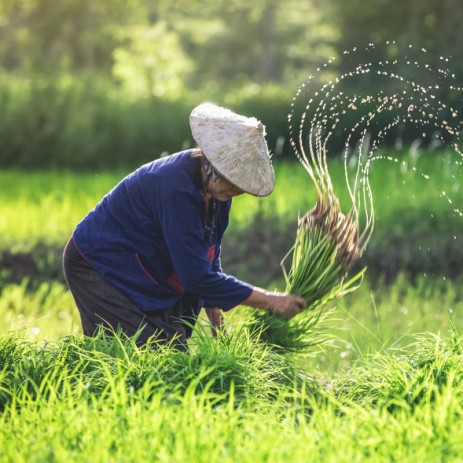REGENERATIVE AGRICULTURE
One of the agricultural practices that need to be highlighted is the use of pesticides and chemical fertilizers, which using them with huge amount of product is causing problems. Since 2002, the amount used has increased a lot, and it’s expected to keep going up. This is bad for the environment and could lead to losing soil we grow crops in within the next 60 years. Moreover, farming is a big source of greenhouses gases, which are bad for the planet. To feed the growing population in the future, we need to find better, more sustainable ways of farming.
Regenerative agriculture is a newer, eco-friendly way of farming that's gaining attention as a better option. It improves the environment and can even have positive effects on society. Compared to traditional farming, it uses less water and resources, and it stops land from getting worse and forests from being cut down. It makes soil healthier, supports more plant and animal life, and helps farms deal with climate changes and save water. Because of these benefits, it can make farms more successful and profitable. Studies show that it could even help fight climate change by trapping a lot of carbon dioxide. Some experts think it might even be able to remove more carbon dioxide from the atmosphere than we produce each year.

Program Objectives

To support Indonesia smallholders to implement regenerative agriculture practices

To ensure a more sustainable and prosperous agricultural landscape in area targeted

To reduces organic carbon in the soil, and removes protective plant residues that prevent soil erosion.
Impact

Improved Productivity

Reduce Gas Emission

Environmental Benefits (reverse climate change)
Our Approach
1
Provide training for smallholder farmers to improve the understanding and knowledge on regenerative agriculture. The training use Farmers Field School (FFS) and collaborative trials: joint experiential learning for farmers to really understand, practice and own new practices approach.
2
Work with smallholder rice farmers to implement no-burning rice farming to reduce the greenhouse gas emissions. This practice leads to the loss of vital nutrients essential for plant growth, reduces organic carbon in the soil, and removes protective plant residues that prevent soil erosion.
3
Testing: soil and agri-inputs lab testing and field trials to optimize inputs usage.
4
Provide knowledge and access for smallholder farmers to biological-based agro inputs such as bio-stimulants, bio-fertilizers, and bio-pesticides as eco-friendly alternatives to conventional chemicals.




